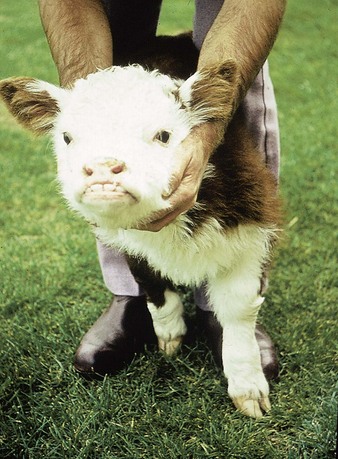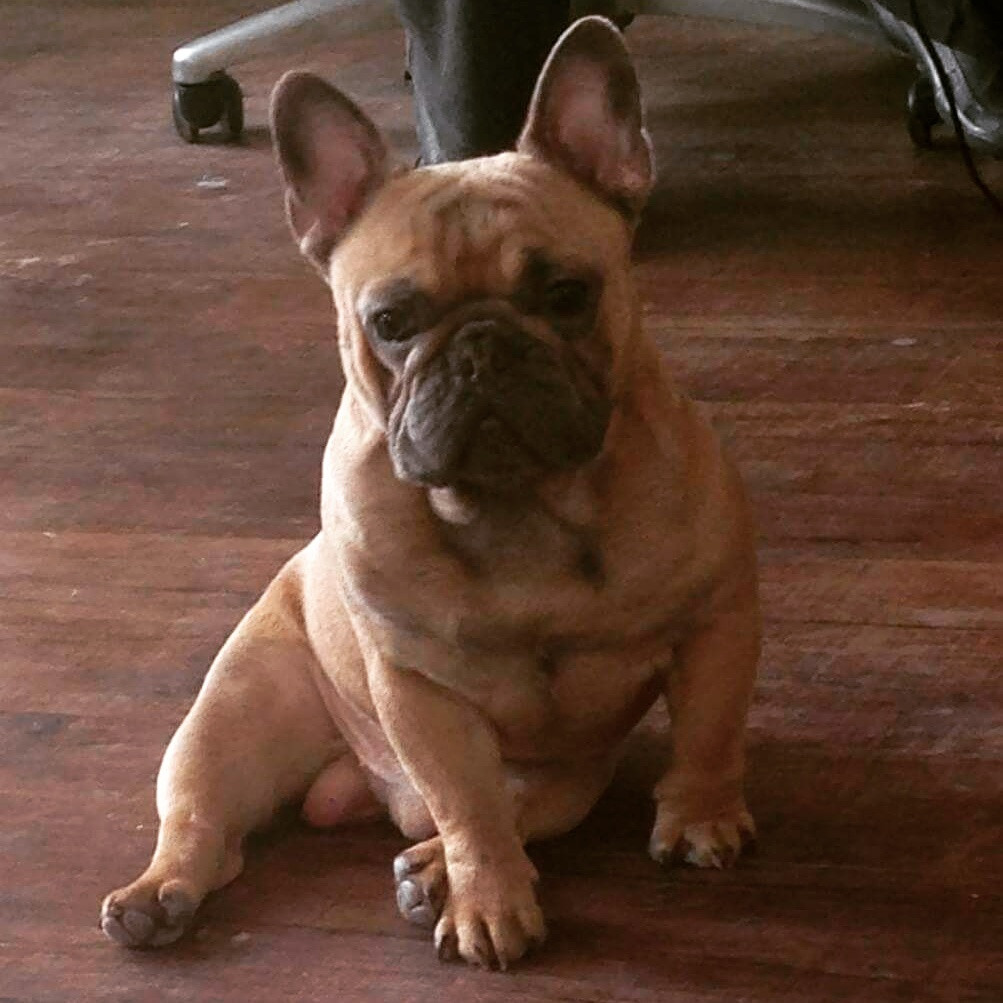Congenital disorders
Table of Contents
Table of Contents
Bulldog calf syndrome is a rare congenital disorder that affects newborn calves. The condition causes severe deformities in the facial bones, resulting in a bulldog-like appearance. While it may seem cute at first glance, this syndrome can cause significant health problems for the calf and can be emotionally challenging for farmers and caregivers.
The Pain Points of Bulldog Calf Syndrome
Bulldog calf syndrome can lead to a range of issues, such as difficulty breathing, eating, and drinking. Additionally, the deformities can cause extra pressure on the calf’s brain, leading to neurological symptoms. This can make it challenging for the calf to stand, walk, or even move around, impacting the quality of life of these newborns significantly. Farmers and caregivers may also face emotional turmoil while caring for these animals, making it hard to watch the animal suffer.
The Target of Bulldog Calf Syndrome
Bulldog calf syndrome targets newborn calves and their families. Farmers breeding animals are also at risk of producing calves with bulldog calf syndrome, leading to significant economic loss.
Summary of Main Points
Bulldog calf syndrome is a rare congenital disorder that affects newborn calves. The condition causes severe deformities in the facial bones, leading to a bulldog-like appearance. As a result, the disease can cause significant health problems for the calf and emotional challenges for farmers and caregivers. Moreover, breeders are at high risk of producing genetic mutations through breeding, leading to economic loss.
Experience with Bulldog Calf Syndrome
One farmer, Jane, said that she had a newborn calf with bulldog calf syndrome that was struggling to breathe on their farm for a while. Despite various trials of treatment, they never managed to restore it to full health. “Watching a calf suffer from such a rare disease is devastating. We tried everything, but the condition defeated us. It’s incredibly distressing for both the animal and us,” she said in a statement.
Bulldog calf syndrome is due to genetic mutations that affect the growth of bones of the face, skull, and forelimbs. These mutations can lead to deformities like cleft palate, mandibular prognathism, asymmetry of the face, and limb malformations, in both purebred and mixed breeds.
Current Treatment of Bulldog Calf Syndrome
Currently, there is no cure for bulldog calf syndrome. Treatment involves supporting the calf’s breathing and addressing other health problems, if any, as they arise. The best way to deal with bulldog calf syndrome is by promoting responsible breeding practices and reducing the risk of genetic mutations.
Genetics of Bulldog Calf Syndrome
Genetic mutations are the primary cause of bulldog calf syndrome. The disease can be inherited from the parents and is caused when the calf inherits two recessive genes. Identifying carrier parents before breeding is essential to control the disease’s spread as it is an inherited condition with an autosomal recessive mode of inheritance.
Risk Factors for Bulldog Calf Syndrome
Bulldog calf syndrome has a genetic predisposition, and the risk increases when the herd’s genetics are concentrated. Certain breeds are also more prone to the disease than others, like the belted Galloways, Holstein, and Jersey breeds. As a result, managing breeding programs and improving herd genetics is the best way to minimize the risk of genetic mutations.
Frequently Asked Questions
What causes bulldog calf syndrome?
Bulldog calf syndrome arises from a genetic mutation that affects bone growth in calves. This can affect the calf’s entire skeletal system, resulting in deformities in the face, skull, and forelimbs.
Can bulldog calf syndrome be cured?
Currently, there is no cure for bulldog calf syndrome. Treatment focuses on symptom management and improving the calf’s quality of life.
Can bulldog calf syndrome be prevented?
The best way to prevent bulldog calf syndrome is by promoting responsible breeding practices and reducing the risk of genetic mutations. Breeders can test for carrier parents and follow appropriate breeding practices to minimize the spread of genetic mutations.
Is bulldog calf syndrome common in all breeds?
No, bulldog calf syndrome is more common in certain breeds such as belted Galloways, Holstein, and Jersey breeds, but it can occur in any breed.
Conclusion of Bulldog Calf Syndrome
Bulldog calf syndrome is a rare congenital disorder that causes deformities in the facial bones of newborn calves. This can result in significant health problems for the calf, and emotional challenges for farmers and caregivers. Currently, there is no cure for bulldog calf syndrome, and treatment focuses on symptom management. To minimize the risk of genetic mutations, promoting responsible breeding practices, and testing for carrier parents can reduce the prevalence of the disease.
Gallery
Frontal View Of The Face Of Bulldog Calf 2. The Frontal Bossing, The… | Download Scientific

Photo Credit by: bing.com / bulldog bossing caudal displacement jaw
Calf Skull With Bulldog Syndrome | OddArticulations, LLC

Photo Credit by: bing.com / oddarticulations
The Bulldog Mutation - The Dairy Crossbred Blog

Photo Credit by: bing.com / bulldog mutation bull calf jersey delivered riley morning
Examples Of The Bulldog Calf Syndrome Showing The Wide Spectrum Of… | Download Scientific Diagram

Photo Credit by: bing.com / bulldog phenotypes
Congenital Disorders | Veterian Key

Photo Credit by: bing.com / dwarfism congenital hereford brachycephalic disorders veteriankey






